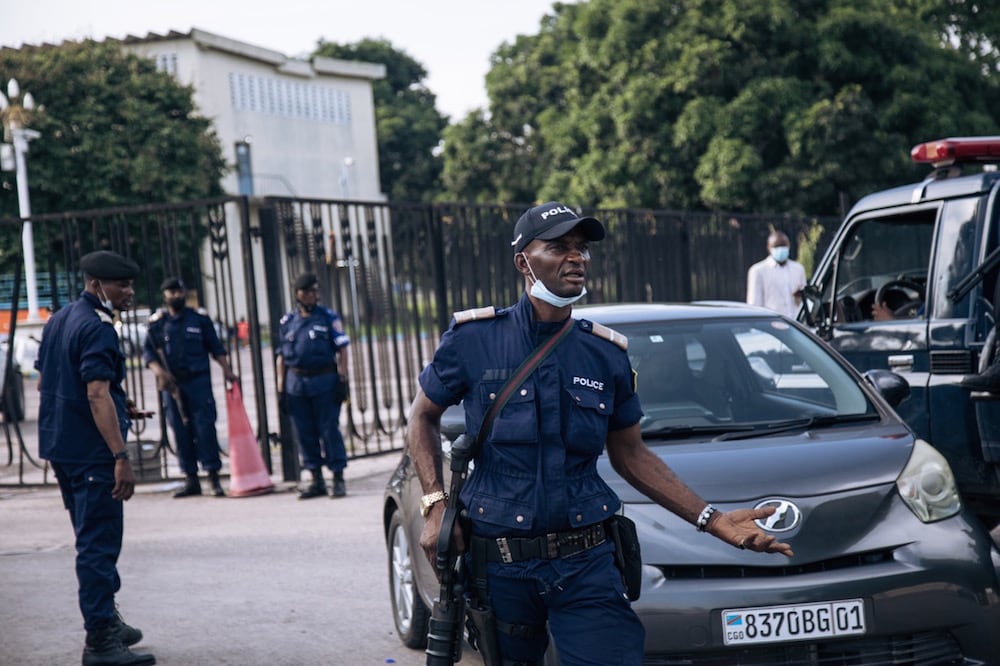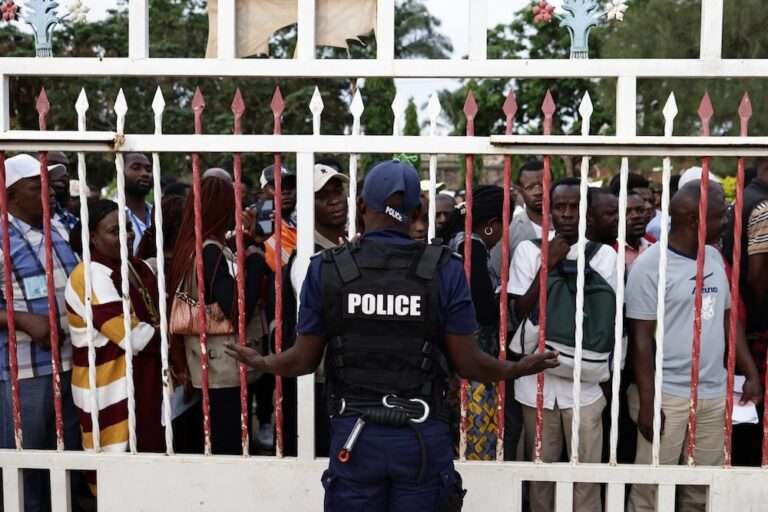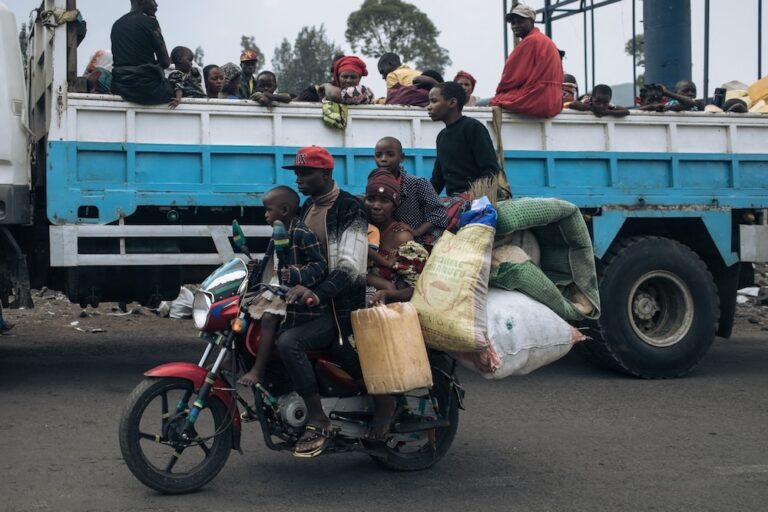In a video shared on social media, journalist and Radio France Internationale corresponded Patient Ligodi who was covering a protest in Kinshasa, DRC is seen being brutally assaulted by police.
This statement was originally published on rsf.org on 20 September 2021.
Police attacked journalists and inflicted damage on the headquarters of a media outlet during a banned protest last Wednesday in Kinshasa, the Democratic Republic of Congo’s capital. Reporters Without Borders (RSF) condemns the exceptional violence used by the police and calls for those responsible to be sanctioned.
A 30-second video posted on social media shows one of the reporters who covered the protest, Patient Ligodi, a Radio France Internationale correspondent and director of the Actualités CD news website, being detained, beaten, dragged along the ground and thrown in the back of a police car, which drives off with Ligodi’s legs hanging out of the still-open back door.
Released a few hours later, Ligodi had to be hospitalised for the effects of his arrest. Communication Minister Patrick Muyaya deplored the “police blunder” and announced an investigation to shed light on the circumstances of the attack on Ligodi and punish those responsible.
Ligodi was not the only journalist to be attacked while covering the banned demonstration, which was called to denounce the Electoral Commission’s politicisation.
Police also roughed up Actu 24 CD journalist Louange Vangu and seized his press card. And they fired teargas at the headquarters of RTVS1 – a media outlet owned by Adophe Muzito, an opponent of the government and one of the protest’s organisers – causing considerable damage. The journalists inside were unable to work and were prevented by the police from leaving until the evening.
“No law enforcement operation justifies this kind of violence against journalists and a media outlet,” said Arnaud Froger, the head of RSF’s Africa desk. “We call on the communication minister to ensure, as promised, that all those responsible for this appalling violence are prosecuted and sanctioned. As well as the required judicial response, the Congolese authorites must also finally adopt a dedicated mechanism for protecting journalists, without which these abuses will keep recurring.”
RSF and its local partner organisation, Journalist in Danger (JED), have long been advocating actively for the creation of a national alert mechanism for protecting and securing journalists and for preventing the repeated attacks against the media in the DRC.
Several Congolese reporters have been threatened or attacked in recent months. They include Canal Kin Télévision presenter Dosta Lutula, who was doing street interviews in Kinshasa in July when presumed supporters of the ruling Union for Democracy and Social Progress (UDPS) accosted him, accused him of “insulting the president” and proceeded to assault him.
Joël Musavuli, a community radio station director in the northeastern province of Ituri, was stabbed to death by intruders in his home in August, a few days after a broadcast in which he referred to human rights violations by different factions under the state of siege declared in Ituri and neighbouring Nord-Kivu province in May in an attempt to pacify the region. His murderers have yet to be identified.
The DRC is ranked 149th out of 180 countries in RSF’s 2021 World Press Freedom Index.



